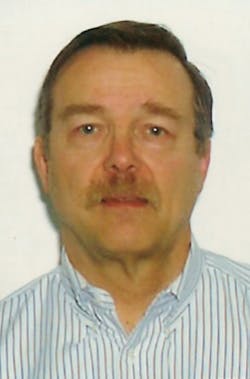Charles Kettering, a prolific inventor with 186 patents, including the electric starter for cars, has become one of my favorite sources for insightful quotes. Although he died in 1958, it’s like he reached more than 4 decades ahead in time to whisper in DHS’s collective 2001-era ear: “You can be sincere and still be stupid.” I don’t mean this as pejoratively as it seems; I was there during the post-9/11 origins of DHS and its 22 sub-agencies including TSA, CBP, ICE, Coast Guard, Secret Service and more, and I made more than my share of sincere-but-stupid mistakes. But in the collective defense of my colleagues and me, during a particularly chaotic time, we did as we were told, by an ill-informed Congress, and several misguided Federal agencies with no clue as to how the aviation system works.
Aviation security regulations don’t arise unbidden; they must support the efficient operation of the air transport system, be based on enforceable legislative authority, and must not impede the rights of the traveling public. Over 16 years, they have been tweaked numerous times, although some would say improperly so, avoiding the scrutiny of a legislatively required formal rule-making process in favor of presumably temporary Security Directives which become semi-permanent by osmosis because nobody in the dizzyingly rapid turnover of TSA leadership remembers why they were imposed in the first place, and is scared witless to be seen as “weakening” security.
If you have always done it that way, that’s why it is probably wrong
-- Charles Kettering, inventor
There is a not-so-clear separation between the government’s responsibility to provide a layer of security to the general public out here in the real world – whether or not they are headed to the airport - and the airport’s responsibility to secure its own facilities and environment when the bad guys get past that somewhat nebulous cloud of public protection. And yet, when something bad happens at Airport X, everyone wants to point to the airport’s “security failure” rather than the government’s failure to identify and interdict six weeks before, when the plots were hatched and the guns were bought.
Fact: There is no such thing as perfect security, just varying degrees of insecurity. The Fort Lauderdale shooter followed all the rules in transporting his weapon. Attacks at Brussels, Paris, Istanbul, Jerusalem, Maalbeck, Moscow and more, often cited as “aviation vulnerabilities”, were in fully accessible public spaces, and notably occurred in other countries with different laws and regulations.
Here’s one of many rubs: intent. There’s a 2nd amendment to our Constitution that suggests you and I can own a bunch of guns. There’s a 1st amendment that says we can protest publicly while waving our guns around about pretty much anything we want, including the government. And there are a lot of laws and several hundred years of tradition that demonstrate we are a free and open society that welcomes immigrants of every stripe. Indeed, unless you are a full-blooded Native American Indian, you are of immigrant origin.
Speaking as one who had a high-level security clearance in TSA, the background and clearance process of obtaining permission to enter the US as an immigrant is significantly more intense than mine was, and can take many years, even after establishing a stellar and trouble-free residency. And yet, our new Administration says all that is not enough - that nobody comes in, especially from certain countries, until you pick a new deity (apparently, Zoroastrianism is still available, even though founded 3500 years ago in Iran), and until we know your intent, and that of your three small children and disabled grandma, for coming here. (How about “staying alive” …)
Airports exist to move aircraft, people and cargo from A to B; they are not law enforcement agencies with intelligence gathering capability and arrest authority. Nonetheless, each commercial airport is required to provide all the accoutrements of physical security to protect itself from incursion by those with evil intent. Fair enough; it’s in their best interests to do so, with the caveat that airports are the last line of defense, not the 1st-through-22nd line presumably provided by TSA. Further, many airports are the equivalent of international borders, with the need to accommodate CBP, ICE, DEA and others. Again, fair enough; it’s their job, notwithstanding the indecipherable and constantly shifting sands of the politics surrounding it.
No, I’m not suggesting that any of this is easy, but let’s be sure to recognize an appropriate level of shared responsibility among all the players. When thing go pear-shaped, too many in government (including Congress) take the attitude that “I didn’t say it was your fault – I said I was blaming you...”



